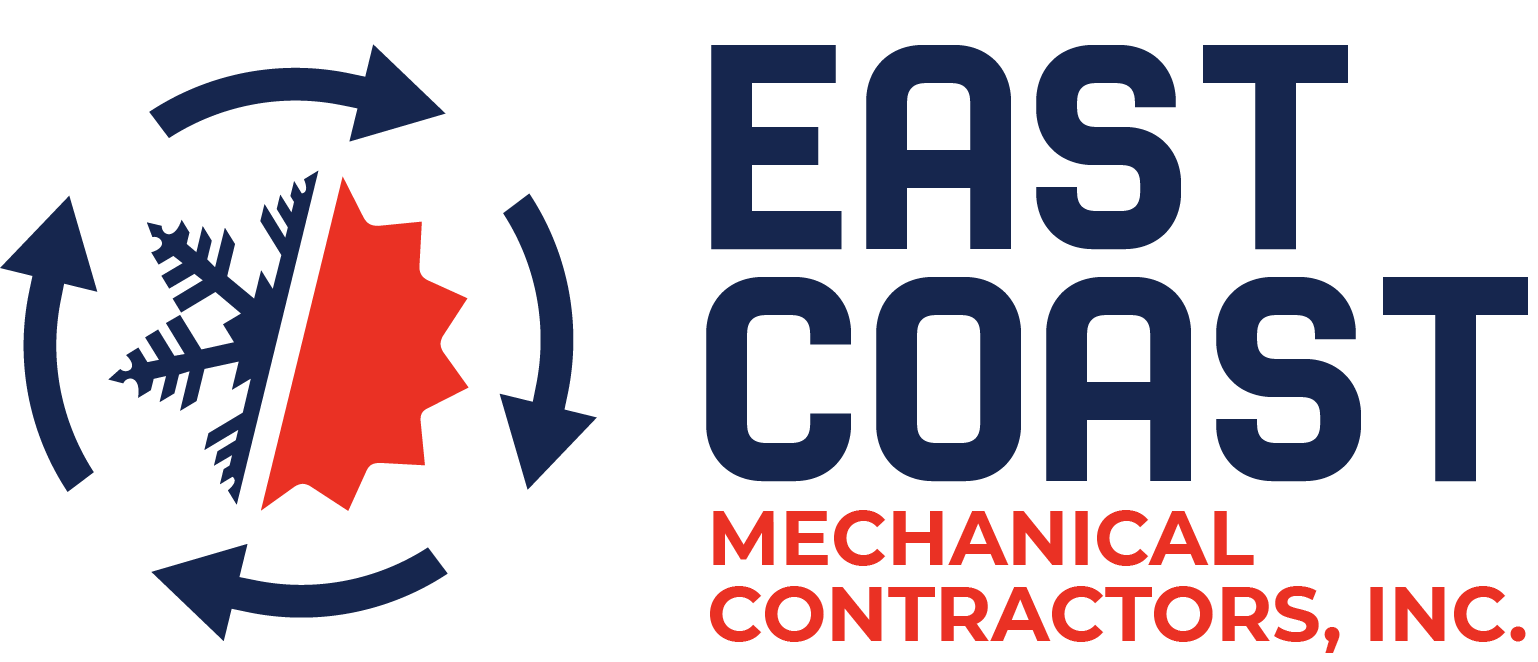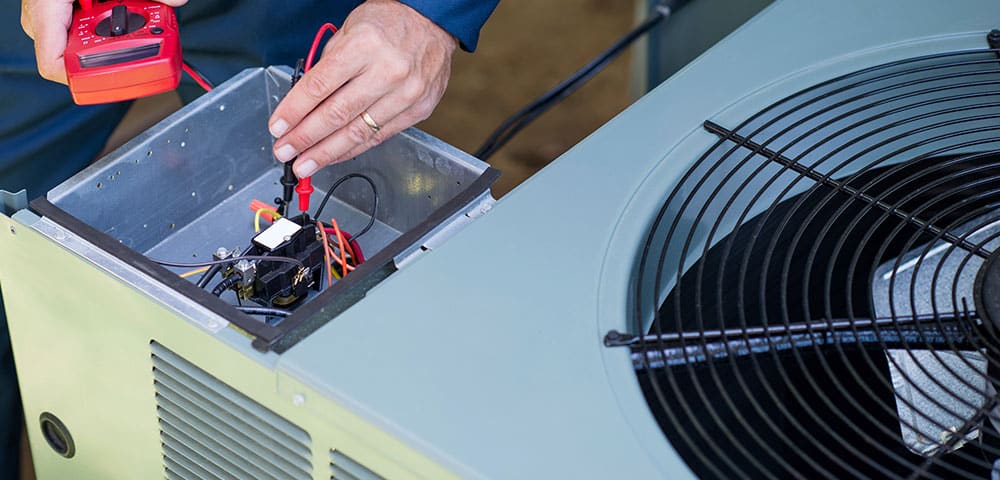You rely on your HVAC system to ensure your home is comfortable. Its efficiency determines how comfortable it will keep you, and how much it will cost you in utility bills and repairs. So, maximizing your HVAC efficiency will help keep your costs down and will help you stay cooler in the summer and warmer in the winter. In this guide to HVAC efficiency, we’ll show you how to best manage your furnace and air conditioner to get the best performance from them. This will help you reduce your bills without compromising your comfort.
Reduce your HVAC Carbon Footprint
In our climate, we need our HVAC system to operate very differently depending on the time of year. In the summer we need to use air conditioners and try to limit the amount of heat that comes into our homes. In the winter, we try to maximize heat and use a furnace, boiler or heat pump to warm us up. Therefore, we need to make many seasonal adjustments to keep the system as efficient as possible. Here’s what you need to know about the changes each season brings, and when you should turn your furnace and your air conditioner on.
WHEN TO TURN ON YOUR FURNACE
For many northeastern people, Halloween means turning on your furnace. When you turn on your furnace in the fall, there are some safety checks. Those with better insulation and sealed doors and windows may find that their home stays warmer later into the fall. In general, though, you will want to turn your furnace on once temperatures start to consistently dip inside your home below 65 degrees F during the day and 55 degrees F at night. In autumn, it will be significantly colder at night, and the first few weeks of furnace use are mostly about keeping you more comfortable at night. Before you turn on the furnace, you’ll also want to get it maintained.
HVAC EFFICIENCY IN THE FALL
In the fall, there are a few things you can do to prepare your home to retain heat better through the winter:
- Open the blinds: The sun can bring a significant amount of heat into your home if you let it. Opening up your blinds and shades will allow the sun and its heat into your home. Homes with south-facing windows will see a ton of free heat from this strategy.
- Upgrade insulation: Fall is a great time to consider your insulation situation. Better home insulation will help you retain heat over the winter. If you can’t afford a full upgrade, consider insulating that portion of the basement or crawlspace that is above grade, and the attic which are the areas of greatest heat loss.
- Change ceiling fan direction: For the fall and winter, you want ceiling or whole house fans pushing downwards. Heat naturally rises, so driving it back down allows you hang on to it a bit longer. In fall and winter, ceiling fans should spin clockwise.
HVAC EFFICIENCY IN THE WINTER
Once winter arrives in full force, your furnace will start working overtime to keep your home warm. Here’s what you can do to make its heat go further and improve the overall energy efficiency of the home.
- Change temperature: How warm do you need it to be? You may be surprised at how easily you can adjust to a temperature that is just one or two degrees lower. And, over the whole season, that small difference really adds up.
- Reduce what you heat: You don’t need to heat every space in your home. With a smart thermostat, or zone heating system, you can leave unused rooms cooler, which reduces the burden on your furnace.
- Use fabrics: Rugs, sweaters, and other fabrics are your best friend in winter. If you can use them to insulate the home and yourself, you’ll be more comfortable, without having to hike up your utility bill.
PRE-WINTER FURNACE MAINTENANCE
It is important to have a professional in to look at your furnace before winter. That way, you avoid interruptions to service and avoid sudden emergency breakdowns in the middle of winter. Your HVAC professional will carefully inspect all components and look for problems, clean, adjust and lubricate the unit and even change your filter.
WHEN TO TURN ON YOUR AIR CONDITIONER
Once winter gives way to spring, you’ll need to turn off your furnace and, perhaps a few weeks or months later, turn on your air conditioner. When exactly should you make the switch? You should turn on your air conditioner when outdoor temperatures are consistently above the temperature you set your air conditioner for the summer. So, if you expect to set your thermostat at 72 degrees F for the summer, then wait until temperatures cross that threshold to turn on the air conditioner. That way, you get used to the higher temperatures and are less likely to turn down your thermostat further too low and use more energy. Bear in mind that you can’t run both heating and air conditioning at the same time. So, before you set your thermostat for the cooling season, make sure you likely won’t want to heat any further for the season. Better yet, before you turn on your air conditioner have a professional maintain it.
HVAC EFFICIENCY IN THE SPRING
Here’s how you can prepare for the blistering heat of summer in the spring:
- Close the blinds: The sun brings extra heat in the spring and summer that you don’t want your air conditioner to have to deal with. So, close up the shades or blinds, at least during the sunniest part of the day.
- Change ceiling fan direction: When it’s warmer, youwant your ceiling fans to help draw the cool air up. Cool air sinks and any help you can provide to help lift them is advisable. So, you’ll want to change their spin to be counterclockwise. The angle of the blades then draws air up from the floor.
- Seal windows and doors: Spring is a great time to consider sealing windows and doors because it can also help reduce the allergens in your home. Plus, come summertime, the sealant will help keep hot air outside from coming inside. If you’re ambitious this year, you could also consider getting more energy-efficient windows.
PRE-SUMMER AIR CONDITIONER MAINTENANCE
You should also get your air conditioner maintained before you turn it on it the spring, or at least before the peak of summer. When your HVAC professional looks at it, they can change out your filter, look for problems, and clean the unit.
YEAR-ROUND HVAC MAINTENANCE Will Reduce Your HVAC Carbon Footprint
Unfortunately, too few people realize that their HVAC system needs maintenance the way that cars need an oil change. If you never changed the oil in your car, you’d expect it to slowly develop other, more expensive problems. Your furnace and air conditioner will do the same. They both have filters that need to be cleaned or replaced. But they also both need professional attention to be sure. They will work for the whole season.
Contact us
If you have furnace maintenance for your office or home, join hands with a licensed and insured contractor at East Coast Mechanical. Email: ecmcecmc@aol.com Address: 5133 W Hurley Pond Rd Suite A, Wall Township, NJ 07727 Hours: Monday to Friday 8 AM to 5 PM and Closed Saturday and Sunday.
Phone: 800-300-ECMC or 732-751-8877

